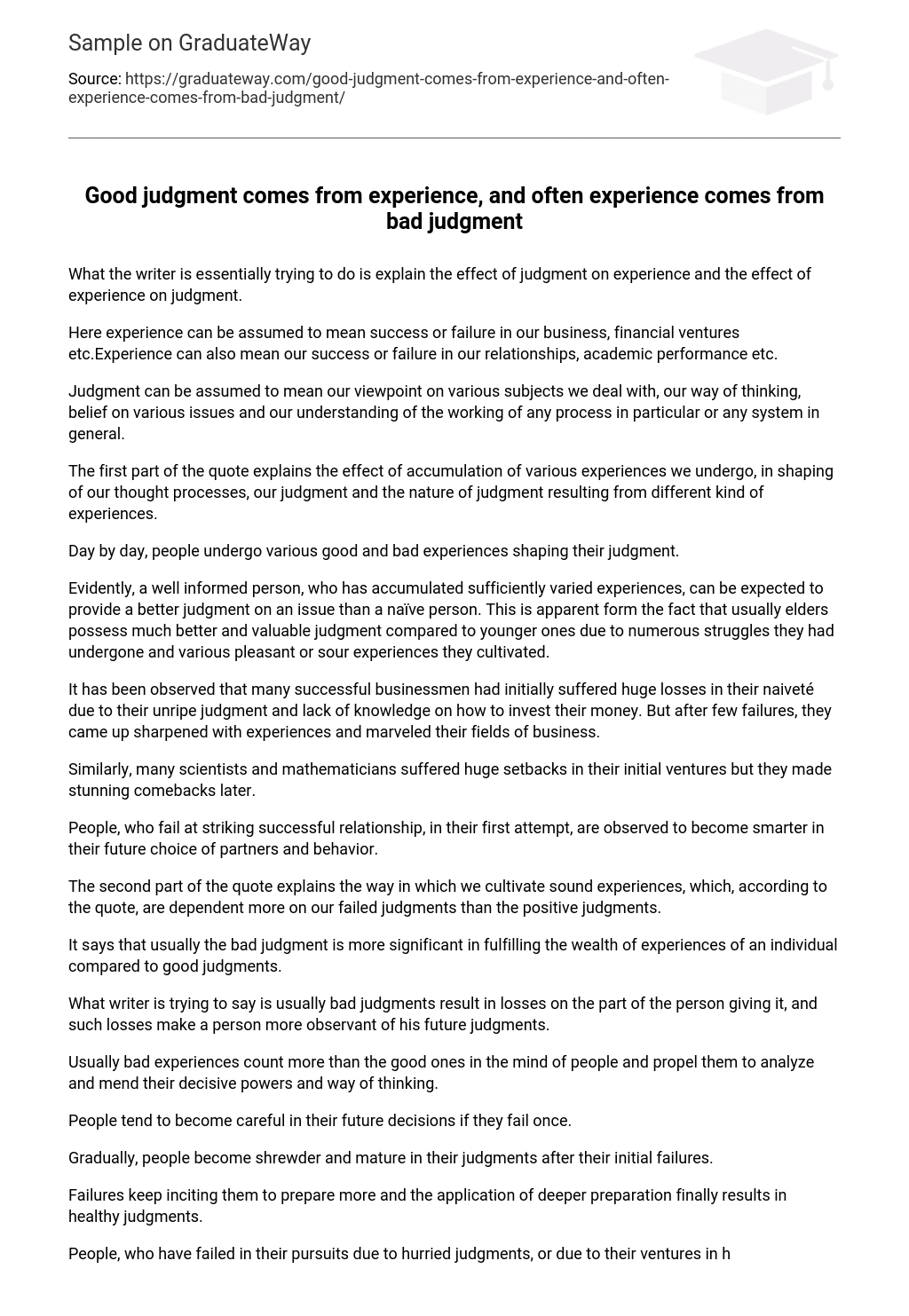What the writer is essentially trying to do is explain the effect of judgment on experience and the effect of experience on judgment.
Here experience can be assumed to mean success or failure in our business, financial ventures etc.Experience can also mean our success or failure in our relationships, academic performance etc.
Judgment can be assumed to mean our viewpoint on various subjects we deal with, our way of thinking, belief on various issues and our understanding of the working of any process in particular or any system in general.
The first part of the quote explains the effect of accumulation of various experiences we undergo, in shaping of our thought processes, our judgment and the nature of judgment resulting from different kind of experiences.
Day by day, people undergo various good and bad experiences shaping their judgment.
Evidently, a well informed person, who has accumulated sufficiently varied experiences, can be expected to provide a better judgment on an issue than a naïve person. This is apparent form the fact that usually elders possess much better and valuable judgment compared to younger ones due to numerous struggles they had undergone and various pleasant or sour experiences they cultivated.
It has been observed that many successful businessmen had initially suffered huge losses in their naiveté due to their unripe judgment and lack of knowledge on how to invest their money. But after few failures, they came up sharpened with experiences and marveled their fields of business.
Similarly, many scientists and mathematicians suffered huge setbacks in their initial ventures but they made stunning comebacks later.
People, who fail at striking successful relationship, in their first attempt, are observed to become smarter in their future choice of partners and behavior.
The second part of the quote explains the way in which we cultivate sound experiences, which, according to the quote, are dependent more on our failed judgments than the positive judgments.
It says that usually the bad judgment is more significant in fulfilling the wealth of experiences of an individual compared to good judgments.
What writer is trying to say is usually bad judgments result in losses on the part of the person giving it, and such losses make a person more observant of his future judgments.
Usually bad experiences count more than the good ones in the mind of people and propel them to analyze and mend their decisive powers and way of thinking.
People tend to become careful in their future decisions if they fail once.
Gradually, people become shrewder and mature in their judgments after their initial failures.
Failures keep inciting them to prepare more and the application of deeper preparation finally results in healthy judgments.
People, who have failed in their pursuits due to hurried judgments, or due to their ventures in huge plans without proper homework, ultimately become more knowledgeable and clever.
The quote, though at first thought looks paradoxical, when analyzed, based on the facts of our daily happenings, can be seen to bear significant certainty.
The quote comprises of two parts, both of which are individually complete quotation, each signifying one portion of the combined saying.





